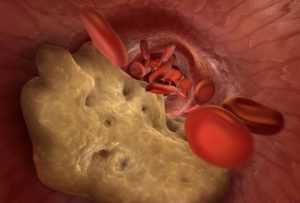
Causes, Risks, and Control of 3 types of cholesterol in the blood
We all have more or less ideas about cholesterol. But many people do not have the right and clear idea. Many people think that those who are healthier, eat and drink more can have cholesterol problems. But in reality, many people suffer from cholesterol problems despite not being very healthy. So, let's know in detail about the 3 types of cholesterol increase in our blood-
3 Types of cholesterol
Cholesterol is a compound derived from the hydrocarbon cholestane. There are 3 types of cholesterol in human blood.
- LDL (LDL- low-density lipoprotein)
- HDL (HDL-high-density lipoprotein)
- Triglycerides
LDL- low-density lipoprotein

When the level of LDL in the blood increases, it is considered a cholesterol problem. Adult human blood contains 1.68-1.43 g/dL of LDL.
LDL, or low-thickness lipoprotein, is a kind of lipoprotein that transports cholesterol and fatty substances in the circulatory system. It is usually alluded to as "terrible" cholesterol since elevated degrees of LDL can add to the development of plaque in the supply routes, prompting cardiovascular illnesses. LDL particles are smaller and denser than other lipoproteins, making them more likely to deposit cholesterol in arterial walls. Managing LDL levels is crucial for maintaining heart health.
HDL-high-density lipoprotein

HDL keeps our body healthy and promotes physical growth. Our blood contains .90-1.60 g/dL of HDL. Simply put, HDL is like our friend.
HDL, or high-thickness lipoprotein, is a sort of lipoprotein that diverts cholesterol from the courses and back to the liver for removal, procuring it the standing of "good" cholesterol. HDL helps remove excess cholesterol from the bloodstream, reducing the risk of plaque buildup and cardiovascular diseases. It acts as a scavenger, promoting the clearance of cholesterol from tissues. More significant levels of HDL are for the most part connected with better cardiovascular well-being and are attractive for keeping up with general prosperity.
Triglycerides

Triglyceride is what accumulates as fat in our body. So, there is no doubt that people who are getting fat have increased blood triglycerides.
Fatty oils are a sort of fat (lipid) tracked down in the circulation system. They are the most well-known type of fat in the body and act as a wellspring of energy. Fatty oils are gotten from dietary fats or integrated by the liver. Raised degrees of fatty substances can be a gamble factor for cardiovascular sicknesses. Way of life factors like a high-fat eating routine, heftiness, and absence of active work can add to expanded fatty oil levels. Managing triglyceride levels is important for maintaining heart health.
Who has high cholesterol?
Cholesterol problems can occur at any age. But if you are 35/over you can easily get cholesterol problems. In our country men are more at risk of cholesterol than women. People who work sitting all day can be more affected.
What are the causes of increased cholesterol?
- Eating too much fast food.
- Eat more red meat, shrimp fish, and chocolate.
- If the food we take in is not expended in exercise, the excess food is stored in the body as fat. As a result, cholesterol increases.
- Sleep immediately after eating.
- Eat more oily food.
- Reducing physical activity (eg, walking), etc.
How to understand if cholesterol increases?
- Sweating and panting with little effort
- Pain in the head and neck
- Chest pounding
- feeling weak
- Body weight gradually increasing etc.
Risk of high cholesterol levels
High cholesterol levels block the blood flow in the arteries, which can lead to heart block. Even cerebral artery rupture can cause instant death. Due to the accumulation of fat, the liver becomes enlarged. Collection of cholesterol in the gallbladder can prompt gallstones. Kidney inflammation can occur. A normal metabolic function may be disrupted.
Cholesterol control and healthy living
Balance diet

Do not eat more rice than necessary. Eat very little beef. Eat everything in moderation.
Maintaining cholesterol control and promoting healthy living can be achieved through a balanced diet. This includes devouring various supplement-rich food sources like organic products, vegetables, entire grains, lean proteins, and sound fats. Restricting the admission of immersed and trans fats, handled food sources, and sweet refreshments are additionally significant. Regular physical activity and maintaining a healthy weight complement a balanced diet for optimal cholesterol management and overall well-being.
Physical exertion

Don't oversleep. Practice walking. Even if we work sitting down, we can reduce the excess fat by just moving our legs.
Physical exertion plays a crucial role in cholesterol control and promoting healthy living. Participating in standard actual work, for example, high-impact activities and strength preparation, can assist with expanding HDL (great) cholesterol levels, work on cardiovascular wellbeing, and diminish LDL (terrible) cholesterol levels. It likewise helps with keeping a solid weight, overseeing circulatory strain, and working on by and large prosperity.
Avoid fast food. Eat less food like pastries, chocolate

To control cholesterol and promote healthy living, it is important to avoid fast food and reduce the consumption of foods like pastries and chocolate. These food sources frequently contain elevated degrees of soaked and trans fats, which can expand LDL (awful) cholesterol. All things considered, center around a fair eating regimen wealthy in natural products, vegetables, entire grains, lean proteins, and solid fats for better cholesterol the board and general well-being.
Eat more foods rich in vitamin C, such as peanuts and sea fish

Including foods rich in vitamin C, such as peanuts and sea fish, can support cholesterol control and healthy living. Vitamin C is known to have cell reinforcement properties that might assist with forestalling the oxidation of LDL cholesterol. Moreover, consolidating various organic products, vegetables, and entire grains can additionally add to a heart-solid eating routine and by and large prosperity.
It is best to eat dinner shortly before going to bed
Contrary to the statement, it is not ideal to eat dinner shortly before going to bed for cholesterol control and healthy living. Consuming a heavy meal close to bedtime can disrupt digestion and promote weight gain. It is recommended to have dinner at least a few hours before sleep, allowing for proper digestion and promoting better sleep quality and overall health.
Conclusion
Maintaining cholesterol control and promoting healthy living involves various factors such as following a balanced diet, engaging in regular physical activity, and making conscious food choices. A balanced diet that includes nutrient-rich foods, limits the intake of unhealthy fats and processed foods and incorporates sources of vitamins and antioxidants can contribute to better cholesterol management and overall well-being. It is also important to avoid eating heavy meals close to bedtime to support digestion and optimal sleep. By adopting these practices, individuals can work towards maintaining healthy cholesterol levels and improving their overall health.
Know the ways to reduce snoring in sleep!
Types of diabetes (Blood Sugar) and Treatments
Read More Articles
Instagram Twitter Facebook LinkedIn Quora Google News
Our Other Engagements:


https://livewithgreen.com/3-types-of-cholesterol-in-the-blood/
.jpg)